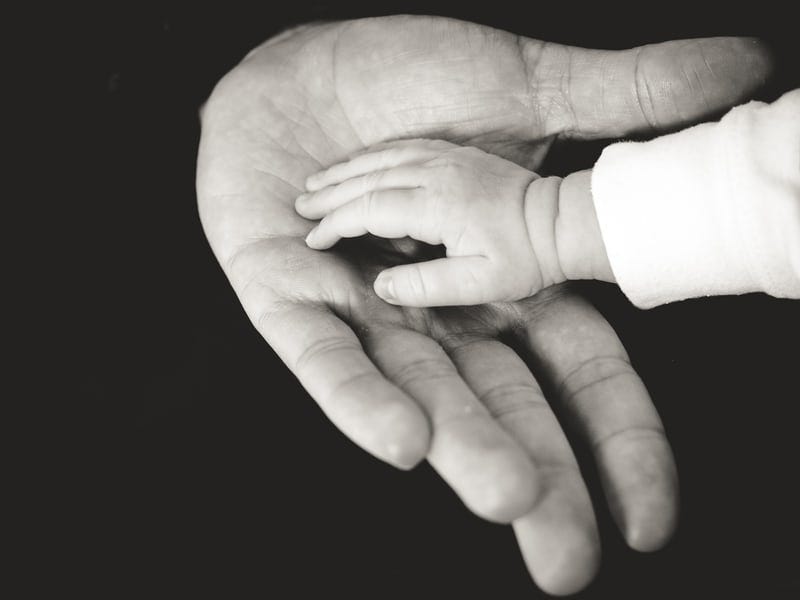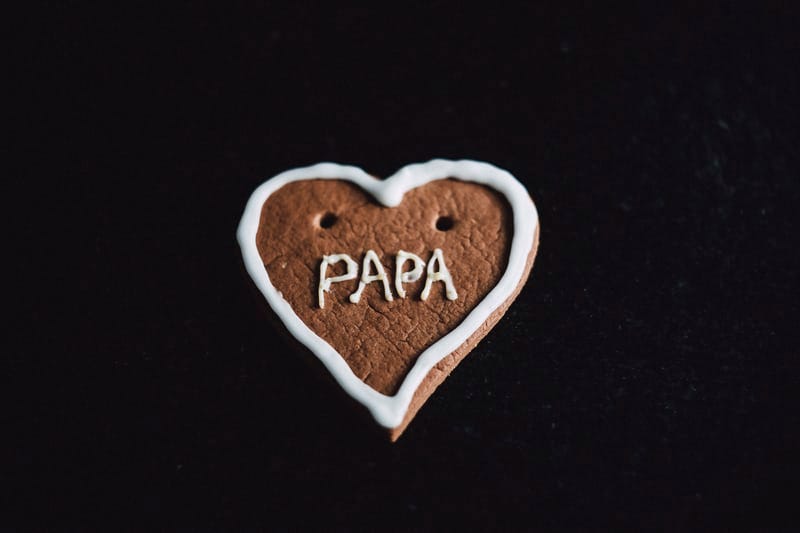Most people don’t plan for the worst hope for the best.
No wonder 70%+ of Americans only have $1k in their savings!
Retirement isn’t even on most middle-aged Americans’ minds.
As a result, if you fail to prepare, prepare to fail.
Most are way too optimistic about the future and as a result it is destroying their financial future which ends up controlling their life.
Why is being too positive destructive?
First of all, it’s completely unrealistic. Sure, if you believe you can do it, it’s much easier to get it done but assuming you will keep a job forever or have your current steady cash flow for the next decade is a dangerous way to live considering what’s certain is uncertainty. Change is inevitable whether we like it or not.
Planning is dreaded by most since we believe we don’t have much control over the future and we want time to stay still yet what if I told you that your life will be easier, more carefree, not be beholden to someone, bring more opportunity and luck your way if you spent some time planning for the unknown and dealing with the annoying ‘what ifs?’
It may not feel terrific in the moment but it certainly will leave you better off than 99% of Americans living on the edge. Literally.
Death Talk
Prior to any major change in life, from getting pregnant to sending kids off to college, what always comes first are finances.
WHY?
Since the number one stressor in Americans’ lives are our finances, they take precedence. Always. Money shouldn’t control our lives, it’s just a part of it as a tool. The more comfortable you are with openly discussing your finances with an advisor and your family, likelier you are wealthier. It’s just facts. I don’t make it up!
If you want kids, realize that it costs roughly $250k until age 18 for a child to grow up in any coastal state (most expensive by region), read here why kids are so expensive.
Plan accordingly for a few DECADES not months in advance to pay more as inflation is set to hover around the Fed’s estimate of 2%, steeper interest rates hikes in 2023, gauged tuition, gas and housing prices rise as wages stay pretty stagnant. Educational expenses along with basic necessities to raise a child can easily surpass $1m for twins in ~2030. 80% of Americans cannot handle that especially as the wealth gap thickens.
Take note of getting older and what that means as a guardian. Once you have kids you already need to start thinking about setting up a will and or trust to become a grantor/trustor/settlor (parents) to your beneficiaries (children). Setting up life insurance, a contract between the insurer and insurance company to provide death benefits to your kids once you pass is key and that inevitably leads to the dreaded conversation of death which sadly is all on our calendars.
Thinking about death isn’t fun. People who are wise don’t want to do it but still know it’s crucial. The premise is to relieve any stress, probate and unexpected decisions and expenses towards the death and transfer of assets.
Most people don’t take action until it’s too late when they really need to change. Who wants to think about worst case scenarios! That isn’t fun!
Well, studying for a test or learning how to drive aren’t either but still necessary to move on and secure one’s life.

Let’s dissect the most popular scenarios that are most deadly to your financial future:
#1 Novice drivers tend to neglect the option of insurance since they believe nothing, even out of their control will happen on the roads until something eventually does and they cannot buy insurance. When you need insurance, you can’t buy it. It’s a safety blanket to avoid double charged costs.
#2 When you get into a marriage already well-off and end up divorcing which leaves your partner to snag a majority of your wealth. You were obsessed with the first stages of love and forget to sign a prenup. Opps! Your ex is better off than you are! That’s awkwardddd.
#3 A spouse, the sole bread-winner of the household unexpectedly passes. The partner, inconveniently a house-wife not knowing anything about the couple’s assets, passwords, contacts, you name it, is now left in the dark scrambling.
Things happen and are going to so put in the work now and do what most don’t do to live like no one else later.
My Experience
In 2016, my father passed unexpectedly. One day I came home from school and he was passed out on the floor. He was a healthy man in his late forties with no preexisting conditions.
I was fortunate to have both my parents employed and knowledgable about our financial situation, but if my dad was the only earner, we would’ve been in trouble.
I believe things happen for you not to you. Our darkest days teach us the most.
That was a life-changing moment that not only taught me the most important lesson which is to never be dependent on one person to keep yourself afloat, but the strength of financial literacy and what the education system has gotten all wrong .
My parents migrated to the states in the 80s. Through unwavering commitment and dedication, investing in themselves day in and night, taking every opportunity they could and disregarding the salary and instead valuing each and every learning opportunity and connections, they manifested their luck and made their way to the top.
They’ve achieved what they never thought was possible. From Connecticut they moved to NYC and landed top jobs on Wall Street and in tech by surprise.
If my mother hadn’t worked or wasn’t familiar with the structure of our finances, asset allocation, files, tax structure, etc I don’t even want to imagine the situation we would be in.
As most families do after a passing, they take time to grieve yet scramble at the same time. Firstly with getting their finances in order, assessing the will/trust to avoid probate, inheritances, death benefits and funeral arrangements. Discussing what could happen can help you avoid all of that including not having to move, stress and spend less, although always recommended to save at least 50%+ of your income.

Starting Again
At the time of my father’s passing, I was 16 so I wasn’t familiar with finance let alone even where my parents worked since they were gone for dozens of hours a day and I barley got to see them.
For the first few months, my mother and I were getting all the paperwork in order. We were meeting with our accountant to lawyer to access what we needed to get done to keep our financial situation in-tact. We met with our financial advisor and accessed our living expenses and investment style including risk tolerance and cash hoard to see if we were able to live the same life as we were before.
At this time I was a sophomore in HS and had been a part of the school for 11 years since Kindergarten. I only had 2 more years left. Although moving schools at this age wouldn’t be as difficult as if I were younger, being a part of this school for most of my life, I grew attached to it and knew this place from the inside out so the ideal scenario would be to stay and luckily I was able to all thanks to a little financial preparation beforehand.
After months of getting everything together and getting ourselves mentally back on track, we knew we would be able to stay in the same home doing the same things. As with every family who looses a loved one who earned substantial income, my mother and I needed to learn how to supplement my father’s income fast since she was the only one working at the time. Two is always stronger than one.
Although we had investments working for us and several passive income sources on the side, we wanted to generate something more stable and have it act as a hedge which inevitably led us into alternative investments including real estate, farmland, crowdfunding, REITS, wine and surprisingly art! More diversification the better and you don’t have to be an accredited investor to invest in these options either.
(Accredited Investor: $1m in net-worth, excluding primary residence with $200k in earned income).
We learned how rewarding it is to save, lower our spending without feeling deprived or cheap, discovered how the rich save 60%+ of their income and got our expenses down to the necessities. Not out of desperation but rather out of choice which led me to appreciate the frugal minimalist stealth wealth lifestyle I follow till this day. We got rid of a lot of baggage, adopted subscription fatigue, sold depreciating assets from cars to clothes that weren’t servicing us and started fresh.
In addition, the biggest life change was moving into a smaller place while renting out our old family home for passive income. Within a few days on the market, we were able to make a deal with a reliable renter for the next few years still living there til this day which earns us almost as much as what my father made.
That led us to feel secure. No matter how much you earn/make, it’s all about how much you keep. You won’t be financially free and sane until you have your finances in order. No matter how many luxury cars and fake image you posses, nothing will replace your fear inside.
The wealthy are quiet, rich are loud and poor are flashy. Image is deceiving.

Cash Cushion
I’ve always recommended to stash at least 6–12 months of expenses inside an emergency fund since accidents will happen and most of them are out of your control, just like my father’s passing.
As a result, 12 months of staked up savings is ideal. Now before you tell me all the reasons why cash is bad, especially as inflationary fears arise with our purchasing power deflating and reversing, when you need cash, you have it ASAP. It’s the most liquid asset that your AMC holdings cannot provide. (I do not endorse AMC)
Instead of paying income or capital gains taxes on your gains from the market to liquidate them, keep cash on hand, roughly 5–10% of your overall net worth and let your investment income continue to grow during the hard times. Your last resort in need of immediate cash is borrowing via P2P lending. I advice keeping an allocated amount of cash 24/7 unless you want to pay exorbitant amounts of interest on your loans.
If you don’t have cash on hand and loose your job, not only will you have to take out loans which charge double you are earning on your savings, your credit score will be lower and typically your other income sources such as your possible rental income will fall out of place as well.
When you loose 1 income source, another one traditionally falls as well as everything is correlated in some way or another except the economy and market for most of 2020.
Women are known to be more conservative because they live longer. Even if you live till 40, do you want to be eating Ramen all day because you’re worried there is going to be a crash in the market and not have enough cash?
Live comfortably under your means with cash instead.
Women are also known to generate higher returns and take on less risk. Read here how women crush the markets compared to men.

After your emergency savings account, savings budget, will/trust/inheritance/probate/funeral expenses/paperwork are set and you’ve brushed up on your financial literacy, make sure these essentials are also in place to secure a safe recovery and financial liftoff:
#1 Understand asset allocation/inheritance and your loved one’s death wishes located in the will
#2 Get a hold of any outstanding debt
#3 Lower our risk tolerance for the time being-better to be safe than sorry
#4 Supplement their income ASAP to live comfortably and not feel too different
#5 Start digging and selling in order to live happily with less junk
#6 Change is scary but this is a good time to evaluate if you could live in a smaller place with less stuff
#7 Never take a day for granted
#8 Become creative with turning your hobby into a side hustle
#9 Establish 8–10 Income Streams
#10 Don’t chase passion, experiment and let it come naturally overtime
#11 Understand It’s Okay To Be Happy and everyone grieves differently
#12 Get a close-knit support system around you at all times with at least 3–10 emergency contacts
#13 Your sadness shouldn’t take away someone else’s sadness
The death rate for our species is 100%. It’s all on our calendars and there’s no way out but what you can do in the meantime is set yourself up for success by taking control of what you have. As I’ve gotten older I’ve realized how vital it is to express to people how much they mean to you and why it’s okay to plan for alternative scenarios. You aren’t creepy or crazy. You are realistic and prudent.
When your friends are living it up in the moment, access your financial situation because in 10, 20 years or tomorrow from now, who knows, that quick check-in you had with yourself could be the best decision you’ve ever made.
Live in the present and know what the future could entail.
Love you dad.

